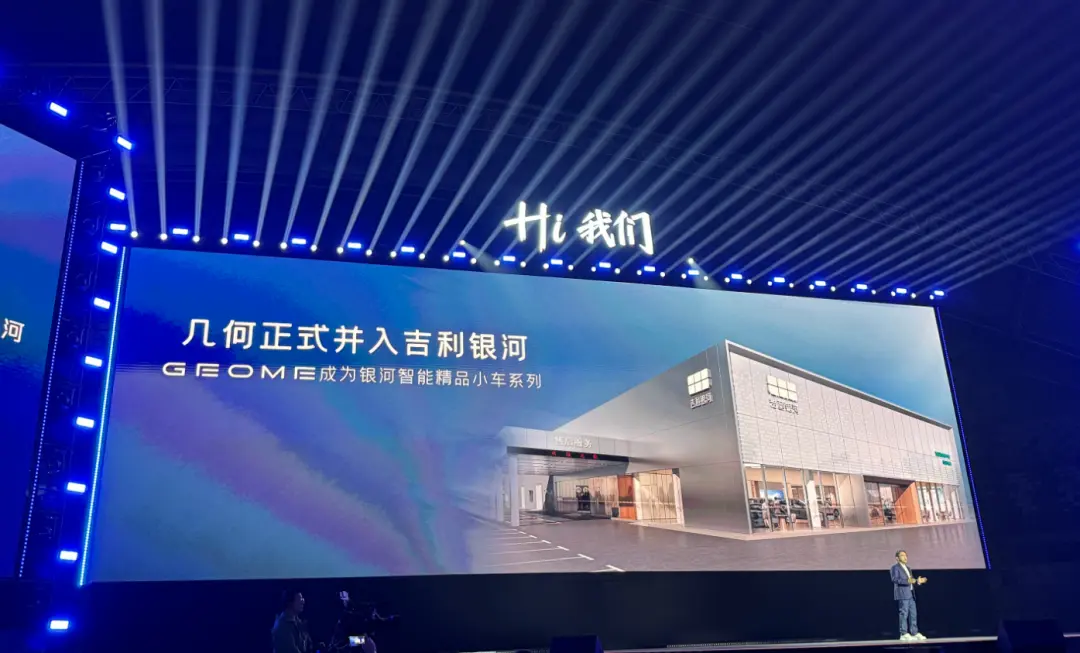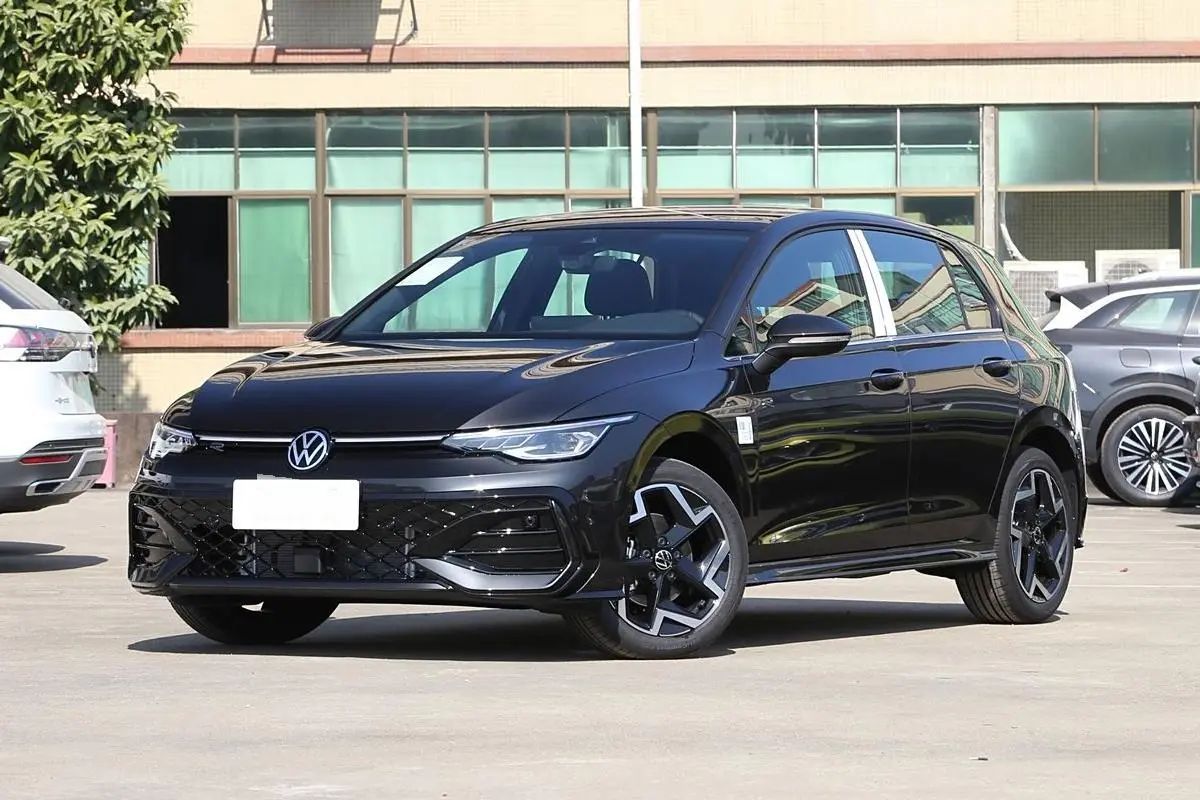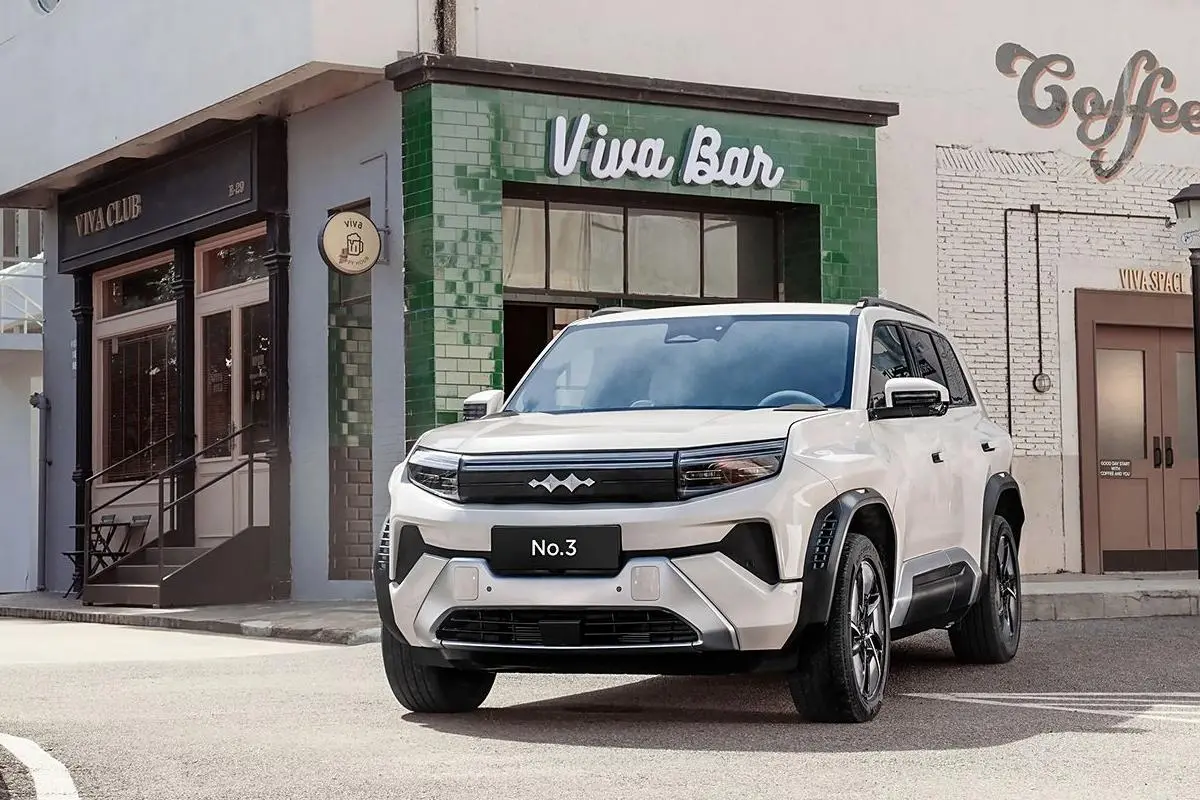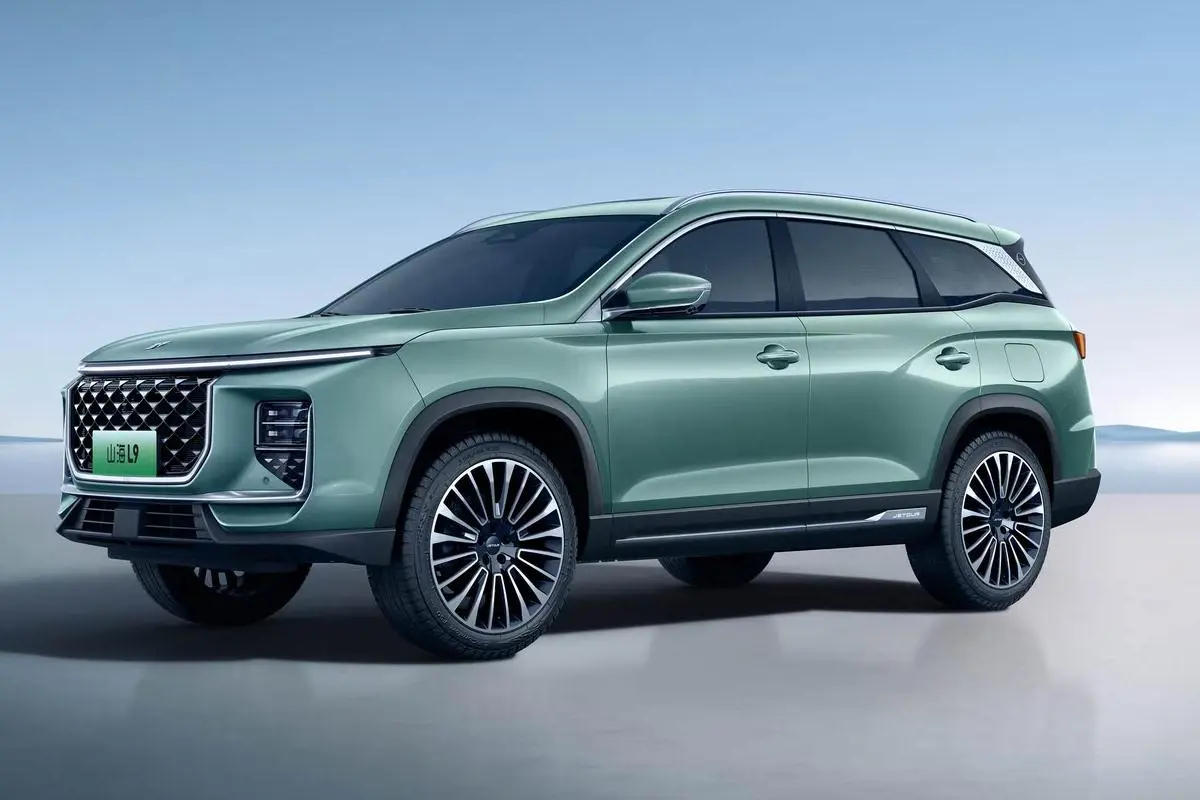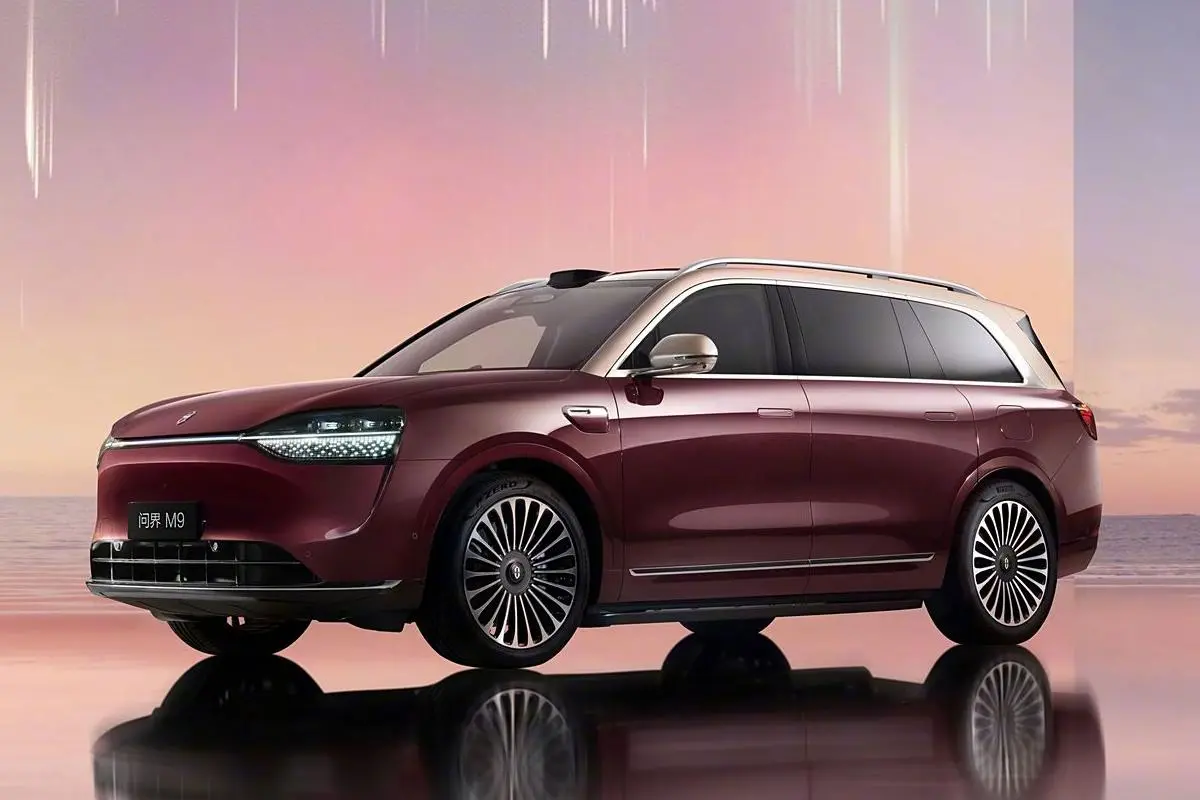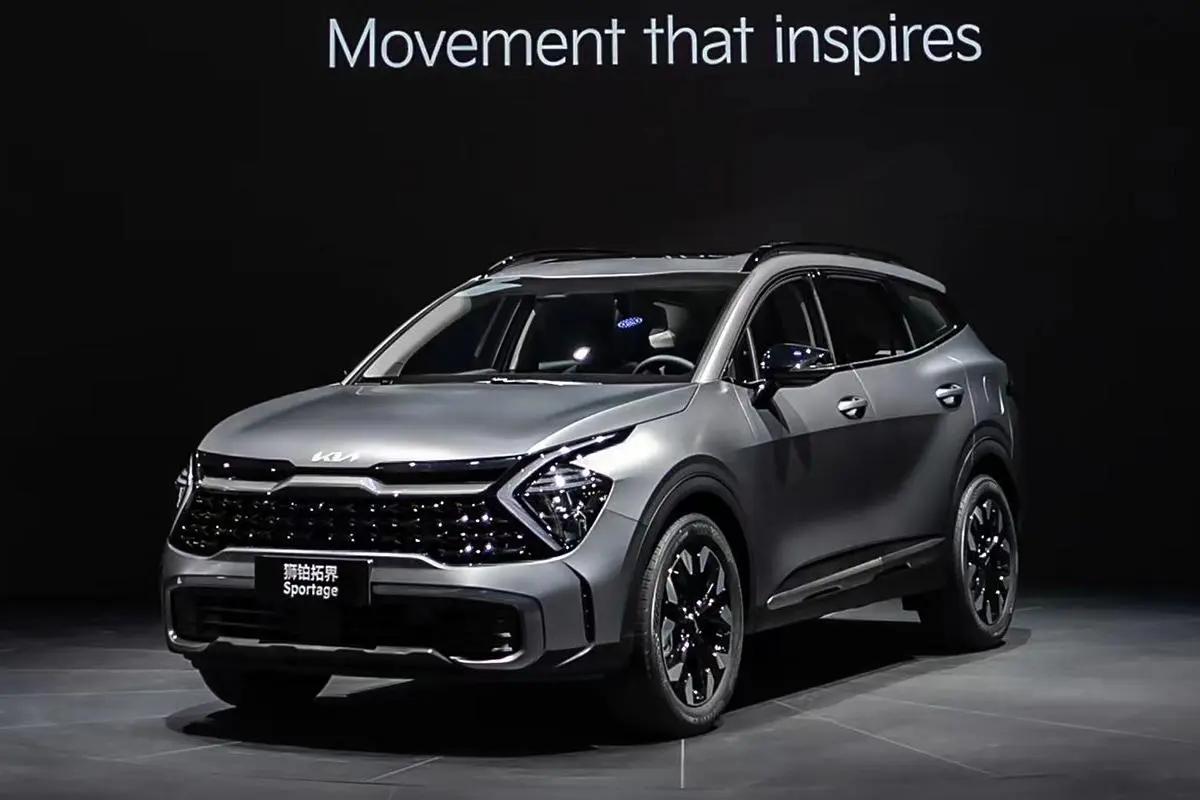Breaking news! Nissan and Honda may merge
Breaking news! Nissan and Honda may merge
Breaking news! Nissan and Honda may merge
According to the Nikkei, Honda Motor and Nissan Motor will enter merger negotiations to integrate their resources to better compete with other automakers in the rapidly changing automotive industry. In addition, Mitsubishi Motors may also join the merger negotiations.
It is reported that Honda and Nissan are considering operating through the establishment of a holding company and will soon sign a memorandum of understanding. In addition, the two companies also plan to eventually bring Mitsubishi Motors under the holding company. Honda's executive vice president responded to the news, "Honda is considering several options, including mergers, capital cooperation or the establishment of a holding company." It is reported that Honda Motor and Nissan Motor will announce the relevant merger plan as early as December 23.
If the merger is successful, Honda + Nissan will surpass the Stellantis Group in terms of sales and revenue, becoming the world's third largest automobile group after Toyota and Volkswagen. Influenced by the news, Nissan's stock price soared 11.46% on Wednesday.
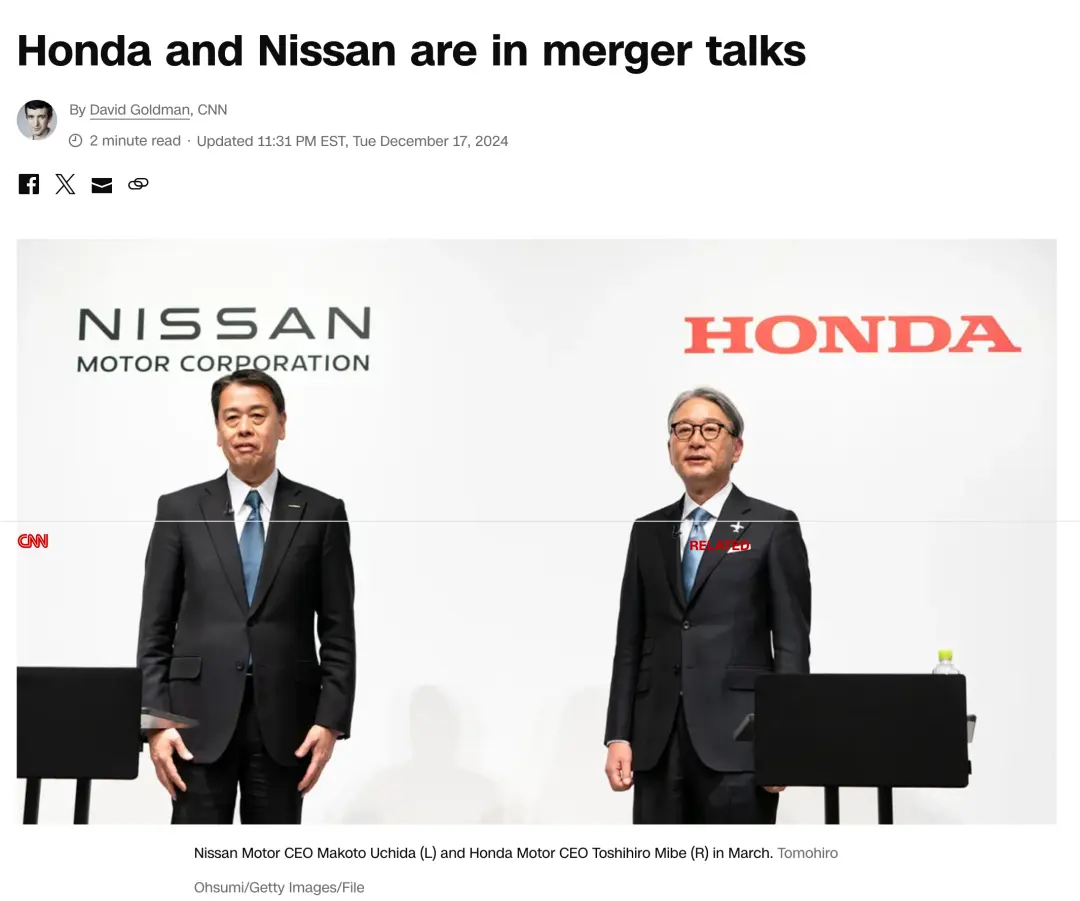
Japanese automakers are indeed having a hard time, with profits almost completely collapsing in the first half of the year. According to Nissan's financial report, operating revenue in the first half of fiscal year 2025 was 5.98 trillion yen, down 1.3% year-on-year; operating profit was 32.908 billion yen, down 90.2% year-on-year; net profit was only 19.223 billion yen, down 93.5% year-on-year; operating profit margin was only 0.5%, compared with 5.6% in the same period; in terms of sales, Nissan's global sales were 1.6 million vehicles, down 1.6% year-on-year, of which the Chinese market had the largest decline of -5.4%.
A series of data reflects Nissan's predicament in the market, especially the dual pressures of finance and sales. Nissan executives even said unabashedly: Nissan still has 12-14 months of survival. In order to cope with the predicament, Nissan has taken a series of self-rescue measures, including reducing production capacity and layoffs. Even CEO Makoto Uchida voluntarily gave up 50% of his monthly salary, and released a new four-year strategic plan.
In comparison, Honda is better off. The financial report shows that in the first half of fiscal year 2025, Honda Motor's revenue increased by 12.4% year-on-year to 10.7976 trillion yen, operating profit increased by 6.6% year-on-year to 742.6 billion yen, and pre-tax profit decreased by 15.6% year-on-year to 741.9 billion yen, and operating profit margin dropped from 7.2% in the same period to 6.9%; during the reporting period, Honda Motor's sales in Japan and the United States increased, but in the Chinese market, with the internal competition in the new energy vehicle track and the increasingly fierce price war, sales have declined significantly.
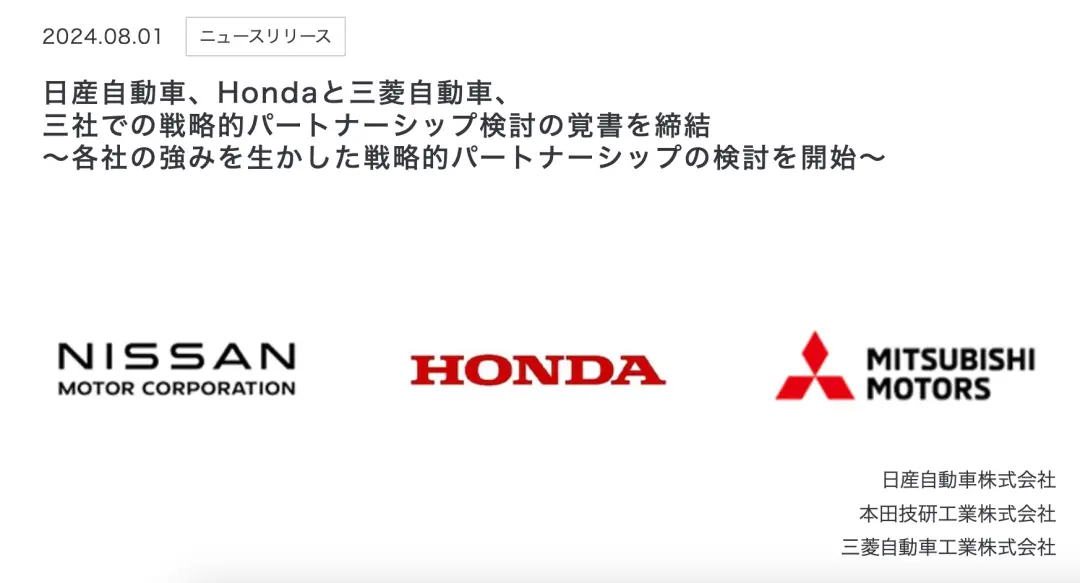
In August, Nissan, Honda and Mitsubishi signed a memorandum of understanding, and Mitsubishi will participate in the research framework based on the memorandum of understanding (MOU) signed by Nissan and Honda on March 15 to begin considering the establishment of a strategic partnership for automotive intelligence and electrification. In October, Toyota, Honda and Nissan agreed to strengthen cooperation in automotive software development. One of the main goals is to promote the unification of API standards, that is, the interface specifications between various software and systems, so that software from different manufacturers can be used on various vehicles, making it easier for software developers to start work, effectively reducing workload, and saving development costs for OEMs.
At the crossroads of new energy transformation, Japanese automakers are facing unprecedented challenges. By "holding together for warmth" and strengthening international cooperation, Japanese automakers are expected to make breakthroughs in reducing costs and improving technical strength, thereby occupying a place in the new energy vehicle market.
At present, in the ever-changing automobile market, closure, suspension and transfer have become a trend that cannot be ignored. In 2021, the PSA Peugeot Citroen Group and the Fiat Chrysler Group merged into the Stellantis Group, ranking fourth in the world, with 14 brands including Peugeot, Citroen, DS, and Opel. Since the beginning of this year, there have also been large-scale brand mergers in the Chinese market. Taking Geely Auto as an example, the Geometry brand was incorporated into the Geely Galaxy series, the Galaxy's smart boutique car series, and Zeekr acquired Lynk & Co, changing from a brotherly relationship to a father-son relationship.
